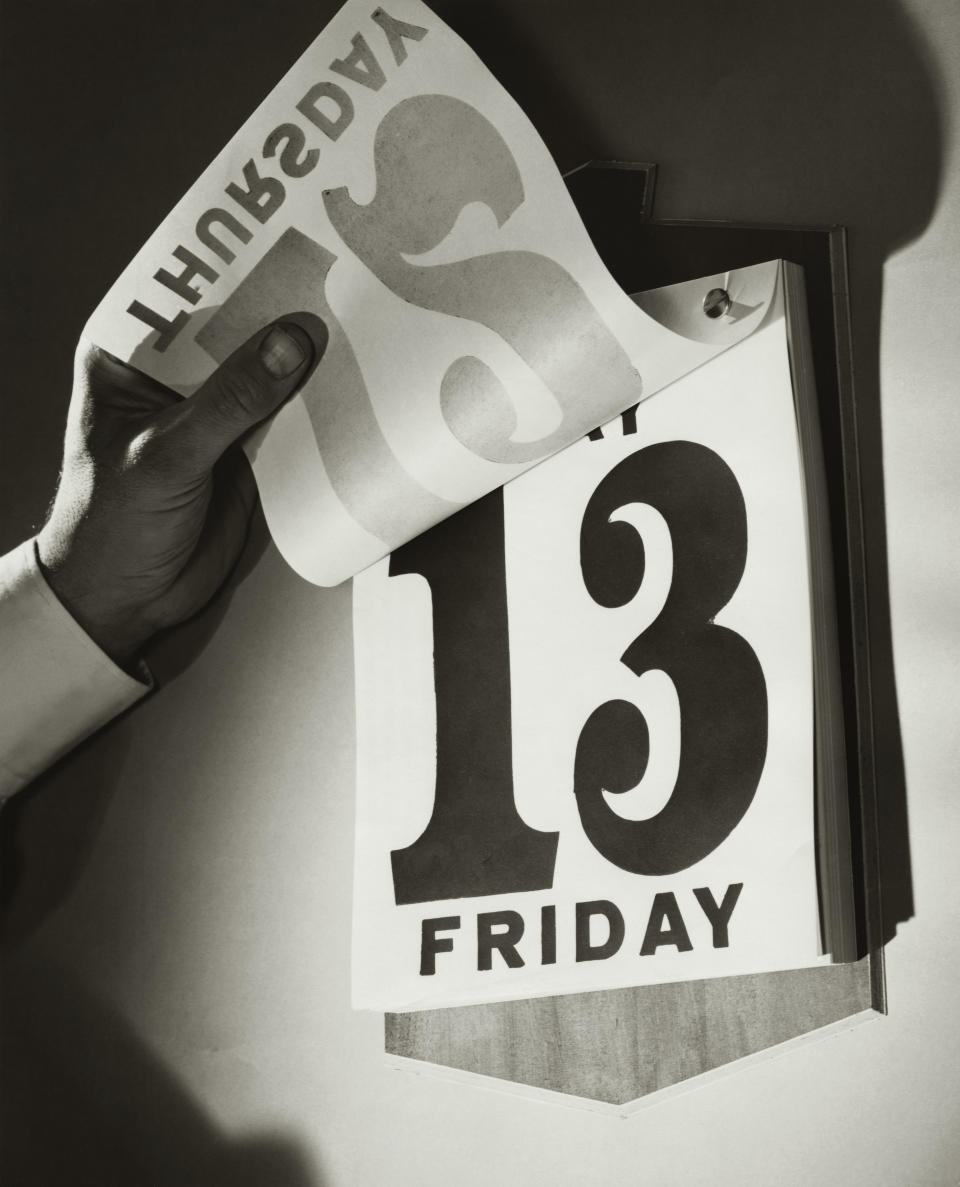Why is Friday the 13th considered so unlucky?
Although it may seem like just another day to some of us, the phobia of Friday the 13th is very real. Some people are so overwhelmed by the inauspicious date, they avoid travel at all costs and call in sick to work while others experience full blown panic attacks.

Donald Dossey, founder of the Stress Management Center and Phobia Institute in Asheville, N.C., estimates 17 to 21 million people in the United States exhibit signs of Friday the 13th phobia called triskaidekaphobia.
“It’s been estimated that $800 or $900 million [USD] is lost in business on this day because people will not fly or do business they would normally do,” Dossey has said.
ALSO SEE: 55 of the strangest superstitions from around the world
Whether you’re superstitious or just a little-stitious, Friday the 13th conjures up feelings of unease for a lot of people — and they may not even know why.
So, where exactly does the fear of Friday the 13th come from?
When discussing Friday the 13th, many believe the Bible plays a large part in the date being seen as an unlucky. In the New Testament, there were thirteen guests at the Last Supper: Jesus and his 12 apostles. The Last Supper was held on what is now called Maundy Thursday (Holy Thursday).
Spoiler alert: One of the 13 people in attendance, Judas Iscariot, betrayed Jesus who was crucified the next day, a Friday. To commemorate the death of Jesus, the Catholic Canon (law) states that followers should avoid eating meat every Friday of the year as a sign of penance for the sacrifice that Jesus gave of Himself.
Norse Mythology also tells of a similar story that helps explain the distrust associated with the the number 13. According to the myth, 12 gods were at a dinner party in Valhalla when a 13 guest, Loki, arrived uninvited. Known as the god of mischief, Loki plotted for the blind goddess of darkness, Hoder, to kill the god of joy and gladness — Balder the Beautiful. Balder’s death made the whole world go dark in mourning and has long since been the reason the number 13 is considered ominous.
ALSO SEE: Four superstitions there’s actually a good reason to obey
The concept of Friday the 13th gained weight in the 20th Century as it began it’s insemination into popular culture. Thomas Lawson’s novel Friday the Thirteenth was published in 1907 is set on the premise of a fictional stockbroker who chooses to Friday the 13th to deliberately crash the stock market.
The date became further ingrained in our consciousness with the 1980 horror movie franchise, “Friday the 13th.” In the films, Jason Voorhees, born on Friday the 13th seeks revenge for his death by providing hours and hours of terror to slasher film audiences.

While there isn’t just one factor that contributed to the distrust of Friday the 13th, there seems to be an element of magical thinking and storytelling that continues to breed the idea of the particular date being a vessel for unfortunate events. Meaning, the more on edge you are about the date, the more likely you are to have an accident. One study revealed that the anxiety surrounding Friday the 13th can actually result in a 52 per cent increase in hospital visits on that day.
Whatever you choose to believe, Friday the 13th is an example of how myth, religion and pop culture inform our behaviour. If you’re not interested in tempting fate, it might be a good idea to kick back, relax and binge watch Netflix. No one here is judging you.
Let us know what you think by commenting below and tweeting @YahooStyleCA!
Follow us on Twitter and Instagram.



